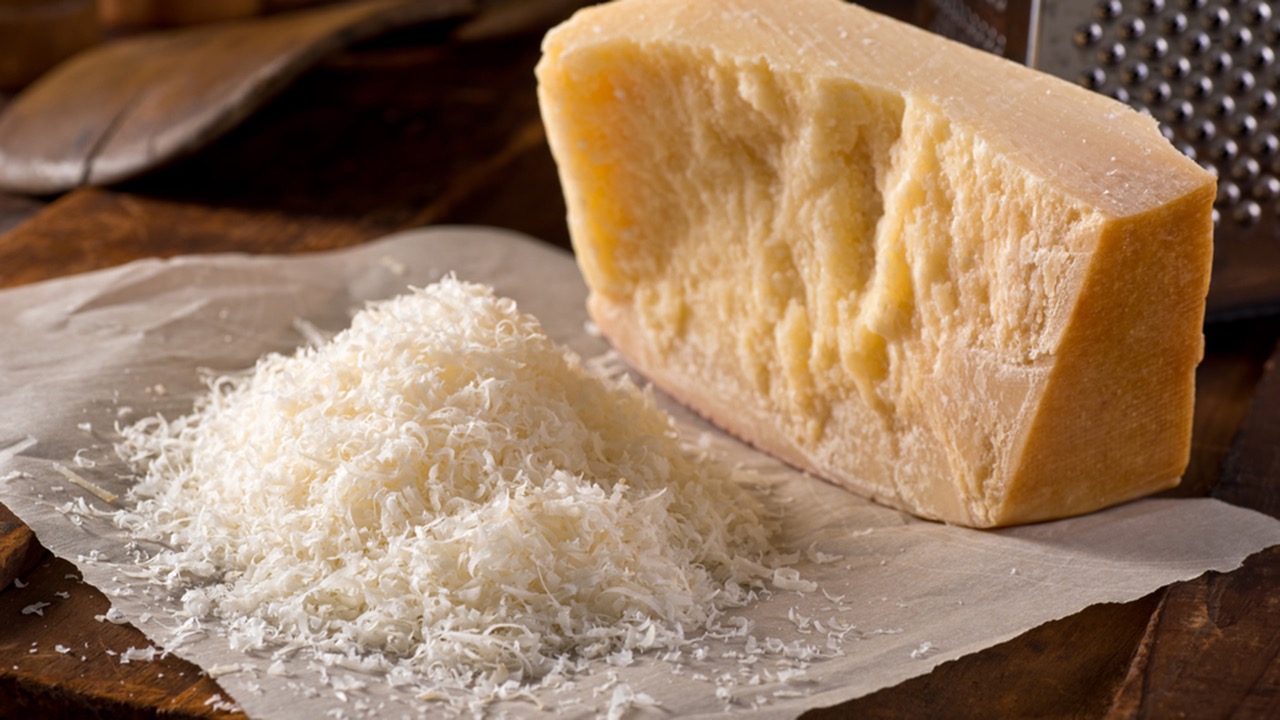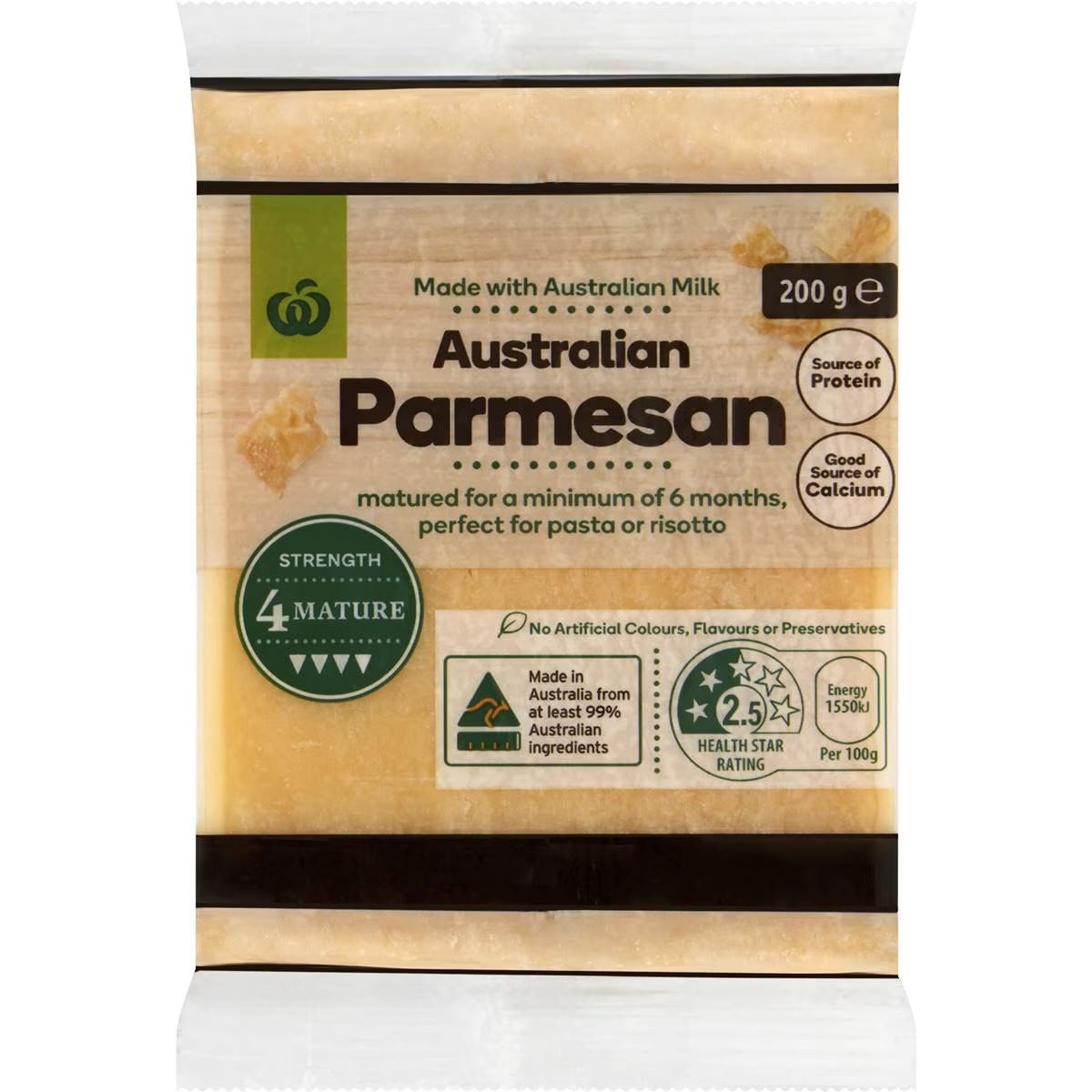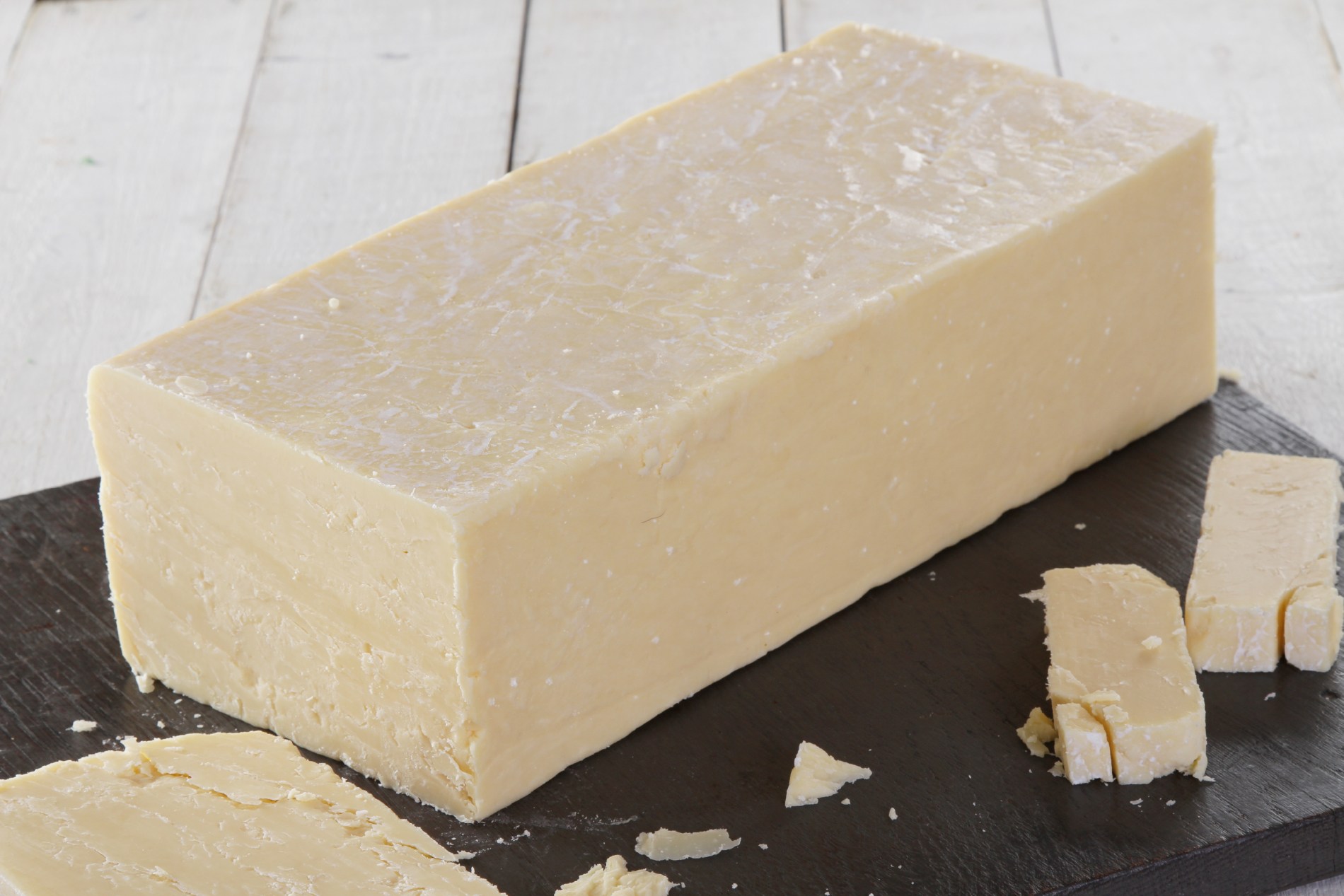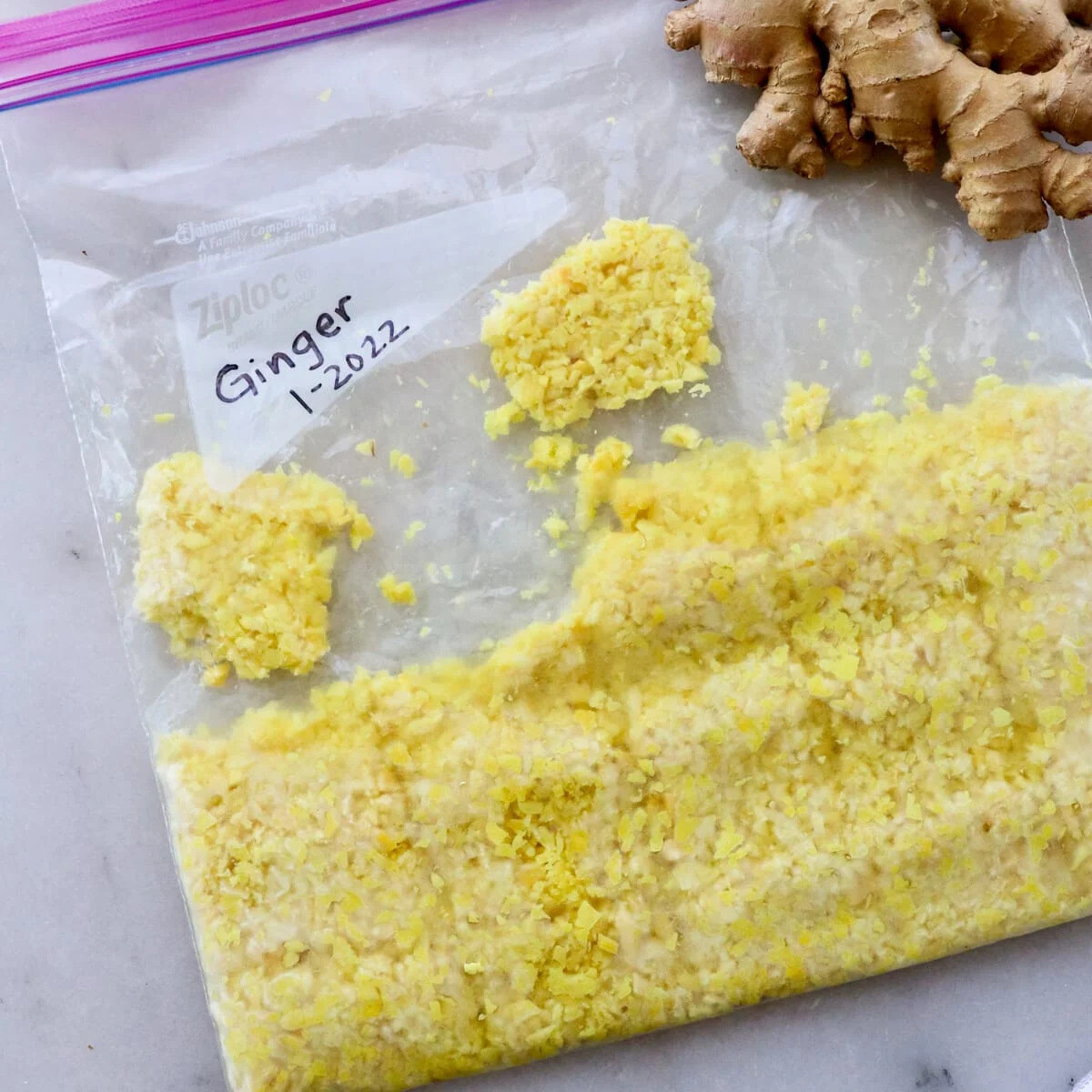

Articles
How To Store Grated Parmesan Cheese
Modified: February 23, 2024
Learn the best methods for storing grated Parmesan cheese with these helpful articles. Keep your cheese fresh and flavorful for longer with these tips.
(Many of the links in this article redirect to a specific reviewed product. Your purchase of these products through affiliate links helps to generate commission for Storables.com, at no extra cost. Learn more)
Introduction
Grated Parmesan cheese is a versatile and flavorful ingredient that adds a delicious touch to a wide variety of dishes. Whether you sprinkle it over pasta, salads, or soups, or use it as a key component in recipes like lasagna or Caesar salad dressing, grated Parmesan cheese can elevate the flavors of your favorite meals.
However, once you open a container of grated Parmesan cheese, you may find yourself wondering how to store it properly to maintain its freshness and flavor. In this article, we will explore the best practices for storing grated Parmesan cheese, including tips for choosing the right container and whether to store it in the refrigerator or the freezer.
By following these guidelines, you can extend the shelf life of your grated Parmesan cheese and enjoy its scrumptious taste even longer.
Key Takeaways:
- Properly storing grated Parmesan cheese is crucial for maintaining its freshness and flavor, ensuring it adds a burst of deliciousness to your meals. Choose the right container, refrigerate, or freeze to extend its shelf life.
- To maintain the quality of grated Parmesan cheese, use airtight containers, store in the refrigerator, or freeze for extended shelf life. Thaw properly and follow tips to preserve its delightful flavor and texture.
Read more: How To Store Parmesan Cheese
Why Store Grated Parmesan Cheese
Storing grated Parmesan cheese properly is essential for maintaining its quality and flavor. Here are a few key reasons why it’s important to store your grated Parmesan cheese correctly:
- Freshness: Parmesan cheese is known for its rich and distinct flavor. By storing it properly, you can preserve its freshness, ensuring that each sprinkle adds a burst of deliciousness to your meals.
- Prevent spoilage: Like any perishable food, grated Parmesan cheese can spoil if exposed to excessive heat, moisture, or air. Proper storage helps prevent spoilage and prolongs the shelf life of your cheese.
- Cost savings: Buying grated Parmesan cheese in bulk or in larger quantities is often more economical. By storing it correctly, you can maximize your purchase and avoid wastage.
- Convenience: Having grated Parmesan cheese on hand makes cooking and meal preparation more convenient. You can easily add it to your favorite recipes without the need for grating cheese each time.
Now that you understand the importance of storing grated Parmesan cheese properly, let’s explore the best practices for ensuring its freshness and flavor.
Best Practices for Storing Grated Parmesan Cheese
Proper storage is key to maintaining the freshness and flavor of grated Parmesan cheese. Follow these best practices to ensure your cheese stays in optimum condition:
- Choose the right container: When storing grated Parmesan cheese, it’s important to choose a container that is airtight and moisture-resistant. Opt for a resealable plastic container or a glass jar with a tight-fitting lid. Avoid using bags or wraps that are not airtight, as they can lead to exposure to air and moisture.
- Keep it in the refrigerator: Unless you plan to use the grated Parmesan cheese within a few days, it’s best to store it in the refrigerator. The cool and controlled temperature of the refrigerator helps slow down the growth of bacteria and keeps the cheese fresh for a longer time.
- Avoid storing near strong odors: Parmesan cheese has a strong flavor and aroma. To prevent it from absorbing odors from other foods in your refrigerator, store it in a separate compartment or in an airtight container.
- Label and date: To keep track of the freshness of your grated Parmesan cheese, it’s a good practice to label the container with the date of purchase or date of opening. This will help you ensure that you use the cheese within the recommended time frame.
- Don’t store in the refrigerator door: The temperature fluctuates more in the refrigerator door, making it less ideal for storing perishable items like grated Parmesan cheese. Instead, keep it on a shelf in the main compartment of the refrigerator where the temperature is more consistent.
By following these best practices, you can prolong the shelf life and preserve the quality of your grated Parmesan cheese. However, if you have large quantities or don’t anticipate using it within a few weeks, you may consider freezing the cheese to extend its freshness.
Choosing the Right Container
When it comes to storing grated Parmesan cheese, selecting the right container is crucial for maintaining its freshness. Here are some factors to consider when choosing the right container:
- Airtight: It is important to choose a container that is airtight. This helps to prevent air exposure, which can lead to oxidation and loss of flavor. Look for containers with tight-fitting lids or seals to keep your grated Parmesan cheese fresh.
- Moisture-resistant: Moisture can cause the cheese to clump together and promote the growth of bacteria or mold. Opt for containers that are moisture-resistant to maintain the texture and quality of the cheese. Glass jars with rubber seals or resealable plastic containers are excellent options.
- Size: Consider the size of the container based on your usage and storage needs. If you use grated Parmesan cheese frequently or plan to store a large quantity, choose a container with ample capacity. This will help minimize the need for transferring cheese to multiple containers and reduce air exposure.
- Transparency: Using a transparent container allows you to easily see the amount and condition of the grated Parmesan cheese at a glance. This can help you plan your usage and monitor any signs of spoilage.
Remember to clean the container thoroughly before storing grated Parmesan cheese to minimize the risk of contamination and ensure optimal storage conditions.
By selecting the right container, you can provide an optimal storage environment for your grated Parmesan cheese, preserving its freshness, flavor, and quality over an extended period of time.
Storing Grated Parmesan Cheese in the Refrigerator
The refrigerator is an ideal place to store grated Parmesan cheese, as it helps maintain its freshness and quality. Here are some guidelines for storing grated Parmesan cheese in the refrigerator:
- Transfer to an airtight container: If the grated Parmesan cheese comes in a bag or package that is not airtight, it is advisable to transfer it to an airtight container. Choose a container that is the appropriate size to accommodate the amount of cheese you have.
- Seal the container tightly: Make sure the lid or seal of the container is tightly closed to prevent air and moisture from entering. This will help maintain the cheese’s freshness and prevent it from drying out or absorbing unwanted odors.
- Store in the main compartment: Place the container of grated Parmesan cheese in the main compartment of the refrigerator, as opposed to the door or the vegetable crisper. The main compartment offers a more consistent temperature, reducing the risk of temperature fluctuations that can affect the quality of the cheese.
- Avoid stacking heavy items on top: To prevent any unnecessary pressure on the container, avoid stacking heavy items on top of it. This can help maintain the shape and texture of the grated Parmesan cheese.
- Check for freshness regularly: Grated Parmesan cheese can stay fresh in the refrigerator for a few weeks or longer, depending on the expiration date. However, it’s important to check for any signs of spoilage, such as mold growth or bad odor, and discard the cheese if it appears to be spoiled.
By following these guidelines, you can ensure that your grated Parmesan cheese remains fresh, flavorful, and ready to be used in your favorite recipes. This will help you maximize the shelf life of the cheese and minimize any waste.
Store grated Parmesan cheese in an airtight container or resealable bag in the refrigerator. Adding a small piece of bread can help absorb moisture and prevent clumping. Use within 3-4 weeks for best quality.
Read more: How To Store Fresh Parmesan Cheese
Storing Grated Parmesan Cheese in the Freezer
If you have a large quantity of grated Parmesan cheese or want to extend its shelf life, storing it in the freezer is an excellent option. Freezing grated Parmesan cheese can help maintain its quality for an extended period. Here’s how to store grated Parmesan cheese in the freezer:
- Divide into portions: If you have a large amount of grated Parmesan cheese, divide it into smaller portions that you can use as needed. This will allow you to defrost only what you need, reducing waste and ensuring the rest of the cheese remains frozen.
- Wrap tightly: Wrap each portion of grated Parmesan cheese tightly in plastic wrap or aluminum foil. This will help prevent freezer burn and maintain the cheese’s texture and flavor.
- Place in a freezer-safe container: Place the wrapped portions of grated Parmesan cheese in a freezer-safe container or resealable freezer bags. Make sure to squeeze out any excess air before sealing to further protect the cheese from freezer burn.
- Label and date: It’s important to label the container or bags with the date of freezing to keep track of the cheese’s freshness. This will help you use the oldest portions first and maintain a rotation system.
- Store in the coldest part of the freezer: For optimal freezing, place the grated Parmesan cheese in the coldest part of your freezer, such as the back or the bottom shelf. This ensures a consistently low temperature, which is essential for keeping the cheese frozen and maintaining its quality.
When you’re ready to use the frozen grated Parmesan cheese, you can thaw it according to your preference. It’s recommended to thaw the cheese in the refrigerator overnight or defrost it slowly in the microwave using the defrost setting.
Remember that freezing may slightly alter the texture of grated Parmesan cheese. While it may not be suitable for sprinkling on top of dishes after freezing, it works well in cooked or baked recipes where the melting and blending of the cheese are desired.
By properly storing grated Parmesan cheese in the freezer, you can extend its shelf life and have a convenient supply of cheese to use whenever you need it.
Properly Thawing Frozen Grated Parmesan Cheese
Thawing frozen grated Parmesan cheese properly is essential to maintain its quality and flavor. Here are some methods for thawing frozen grated Parmesan cheese:
- Refrigerator thawing: The safest method of thawing frozen grated Parmesan cheese is in the refrigerator. Simply transfer the portion of cheese you want to use from the freezer to the refrigerator and let it thaw overnight or for several hours. Thawing in the refrigerator allows for a slow and controlled thaw, ensuring that the cheese retains its texture and flavor.
- Microwave thawing: If you need to thaw grated Parmesan cheese quickly, you can use the microwave. Place the frozen cheese in a microwave-safe dish and defrost it using the defrost setting or at a low power level. Check the cheese frequently to prevent it from melting or becoming too soft. Be cautious not to overheat the cheese, as it can result in a less desirable texture.
- Direct usage: In some cases, you may not need to thaw the grated Parmesan cheese at all. If you’re using it in cooked or baked dishes, you can often add the frozen cheese directly to the recipe. The heat from cooking will melt the cheese, distributing its flavor and texture throughout the dish.
Regardless of the method you choose, it’s important to avoid refreezing previously thawed grated Parmesan cheese. Once it has been thawed, it’s best to use it within a few days to maintain its freshness. Discard any unused portions of thawed cheese if they have been left at room temperature for an extended period.
Thawed grated Parmesan cheese may have a slightly different texture compared to fresh cheese. It might be softer or clump together, but this generally doesn’t affect its flavor or its ability to enhance your dishes.
By properly thawing your frozen grated Parmesan cheese, you can enjoy its delicious flavor and use it in your favorite recipes with ease.
Tips for Maintaining Freshness
To ensure the grated Parmesan cheese remains fresh and full of flavor, here are some helpful tips to follow:
- Use clean utensils: When retrieving grated Parmesan cheese from the container, make sure to use clean utensils to prevent any cross-contamination. This helps maintain the cheese’s freshness and prevents the introduction of any unwanted bacteria.
- Keep moisture out: Moisture is the enemy of grated Parmesan cheese, as it can cause clumping or mold growth. To keep moisture at bay, always seal the container tightly after each use and avoid storing the container near sources of excessive humidity, such as the stove or dishwasher.
- Avoid direct contact with hands: The natural oils and bacteria on your hands can accelerate spoilage. Whenever possible, avoid touching the grated Parmesan cheese with your hands. Instead, use a clean spoon, spatula, or measuring spoon to scoop out the cheese.
- Don’t return used cheese to the original container: Once you have used the grated Parmesan cheese, it’s best not to return any leftovers to the original container. This can introduce moisture and contaminants, compromising the freshness of the remaining cheese.
- Store in smaller quantities: If you find yourself not using grated Parmesan cheese frequently, consider storing it in smaller quantities. This ensures that you only open and expose a portion of the cheese to the air, while the rest remains sealed and fresh.
- Rotate the cheese: To prevent cheese from sitting in one spot for too long, it’s a good practice to rotate the container occasionally. This redistributes any potential moisture and helps maintain the cheese’s quality throughout the container.
- Store away from strong odors: Grated Parmesan cheese has a robust flavor and can easily absorb odors from other foods in the refrigerator. Store the cheese away from foods with strong odors, such as onions, garlic, or fish, to maintain its own distinct taste.
By following these tips, you can extend the freshness and flavor of your grated Parmesan cheese, ensuring that every sprinkle adds a delightful touch to your meals.
Conclusion
Properly storing grated Parmesan cheese is essential for maintaining its freshness, flavor, and quality. By following the best practices outlined in this article, you can ensure that your grated Parmesan cheese remains delicious and ready to enhance a variety of dishes.
Choosing the right container, whether it’s airtight and moisture-resistant, is crucial in preserving the cheese’s texture and preventing spoilage. Storing grated Parmesan cheese in the refrigerator offers an ideal environment, keeping it fresh for weeks. Freezing the cheese is another option if you have a large quantity or want to extend its shelf life.
When thawing frozen grated Parmesan cheese, using the refrigerator or microwave on a low setting is recommended to prevent a change in texture. However, there are instances where the cheese can be used directly from frozen in cooked or baked dishes.
Maintaining freshness involves using clean utensils, keeping moisture out, and avoiding direct contact with hands. Additionally, storing the cheese in smaller quantities, rotating the container, and storing it away from strong odors can help ensure it stays flavorful.
By implementing these tips and guidelines, you can enjoy the full potential of grated Parmesan cheese in your culinary creations. So, whether you’re sprinkling it over pasta, incorporating it into sauces, or using it as a topping, your grated Parmesan cheese will always bring a delightful burst of flavor to your favorite dishes.
Remember to label and date your containers, check for signs of spoilage regularly, and discard any grated Parmesan cheese that appears to be spoiled.
With these practices in mind, you can confidently store and make the most of your grated Parmesan cheese, ensuring its quality and deliciousness for as long as possible.
Frequently Asked Questions about How To Store Grated Parmesan Cheese
Was this page helpful?
At Storables.com, we guarantee accurate and reliable information. Our content, validated by Expert Board Contributors, is crafted following stringent Editorial Policies. We're committed to providing you with well-researched, expert-backed insights for all your informational needs.















0 thoughts on “How To Store Grated Parmesan Cheese”